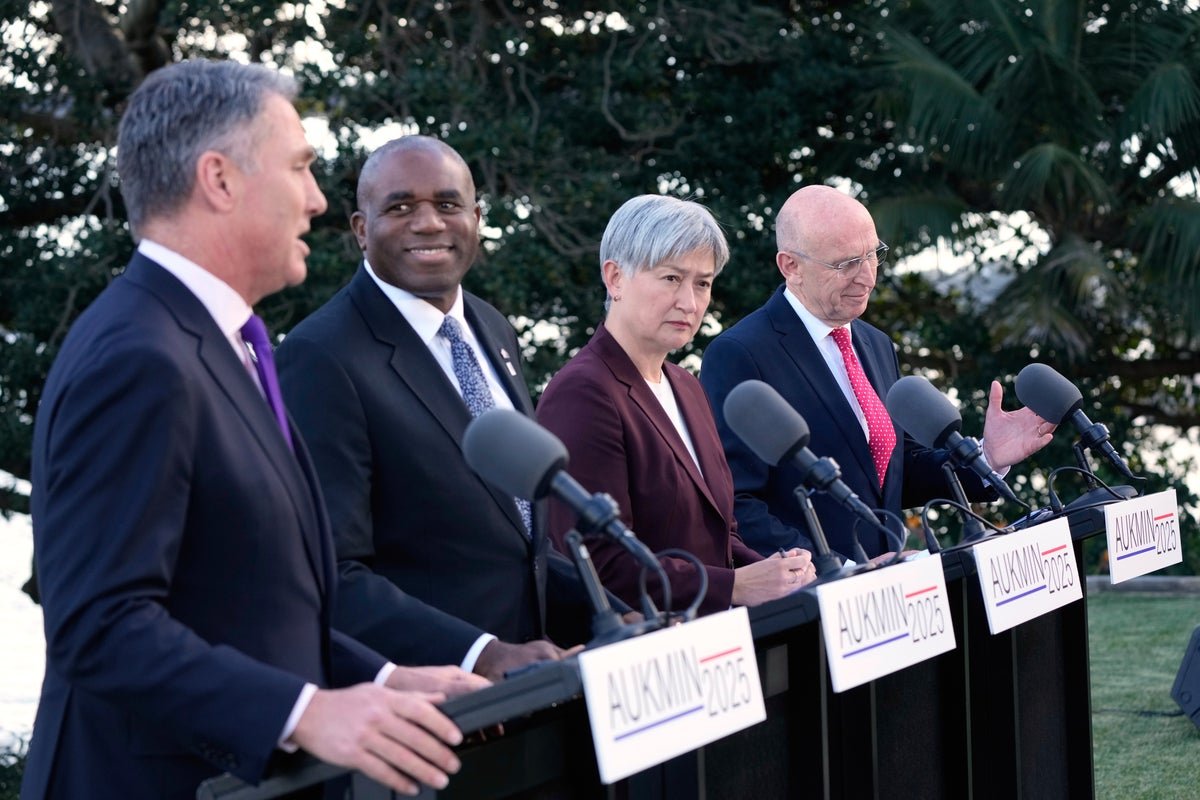US Politics
Britain and Australia to sign 50-year nuclear submarine treaty

Your support helps us to tell the story
From reproductive rights to climate change to Big Tech, The Independent is on the ground when the story is developing. Whether it’s investigating the financials of Elon Musk’s pro-Trump PAC or producing our latest documentary, ‘The A Word’, which shines a light on the American women fighting for reproductive rights, we know how important it is to parse out the facts from the messaging.
At such a critical moment in US history, we need reporters on the ground. Your donation allows us to keep sending journalists to speak to both sides of the story.
The Independent is trusted by Americans across the entire political spectrum. And unlike many other quality news outlets, we choose not to lock Americans out of our reporting and analysis with paywalls. We believe quality journalism should be available to everyone, paid for by those who can afford it.
Your support makes all the difference.
Read more
Britain and Australia announced they will sign a cooperation treaty to build Australian nuclear-powered submarines and welcomed a review by President Donald Trump’s administration of the United States’ role in the trilateral defense deal.
Britain’s Defense Secretary John Healey and Foreign Secretary David Lammy met Friday with their Australian counterparts Richard Marles and Penny Wong in Sydney for an annual bilateral meeting.
Marles said he and Healey will sign a 50-year treaty Saturday that will underpin bilateral cooperation on building an Australian fleet of submarines powered by U.S. nuclear technology.
“It is as significant a treaty as has been signed between our two countries since federation,” Marles said, referring to the unification of several British colonies to form the Australian government in 1901.
The three-way alliance was announced in 2021 to contend with growing Chinese military might in the Asia-Pacific region. It would deliver Australia at least eight submarines including three to five second-hand U.S. Virginia-class submarines. Britain and Australia would cooperate to build their own SSN-AUKUS submarines.
US reviewing AUKUS trilateral submarine deal
U.S. Defense Secretary Pete Hegseth is reviewing the pact, known by the acronym AUKUS, that was entered into by U.S. President Joe Biden’s administration. There are concerns that the U.S. won’t provide Australia with its first Virginia-class submarine by the early 2030s as planned because U.S. submarine-building was behind schedule.
Marles and Healey declined to speculate on whether Britain and Australia would continue with jointly building submarines if the U.S. pulled out when questioned at a press conference.
“Australia and the U.K. welcome the review because we see this as a chance for a new administration to renew their commitment to AUKUS. And that’s what we expect,” Healey said.
“Any sort of hypotheticals that you suggest simply aren’t part of the picture,” Healey added, referring to the prospect of Britain and Australia proceeding without the U.S.
The Australian government confirmed this week it had paid the U.S. a second $500 million installment on the AUKUS deal. The first $500 million was paid in February.
The submarines are expected cost Australia up to $245 billion.
The meeting comes as 3,000 British military personnel take part in the largest military exercise ever conducted in Australia.
British aircraft carrier joins Australian war games
More than 35,000 military personnel from 19 nations are taking part in Exercise Talisman Sabre, which began in 2005 as a biennial joint exercise between the U.S. and Australia.
Marles and Healey will inspect the British aircraft HMS Prince of Wales at the northern port of Darwin on Sunday. The carrier is in Australia to take part in the war games.
Lammy said the carrier’s arrival in Darwin was meant to send a clear signal to the world.
“With our carrier strike group docking in Darwin, I think we’re sending a clear signal, a signal of the U.K.’s commitment to this region of the world. Our determination to keep the Indo-Pacific free and open, and that we stand together,” he said.
